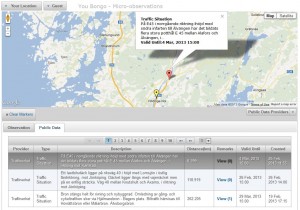For third-party developer to be effective in their work creating product and services that uses open data. The providing organisation of data must provide value generating mechanism that facilitate and support their effort. One recent study done by Viktoria Swedish ICT in collaboration with the Swedish Transport Administration (STA), investigated which mechanism that third-party developers values when drafting services that uses open data.
The study conducted in-depth interviews with enterprises and individuals that uses traffic information from STA and has developed a embryo for a model that points-out process and principals that are important to support third-party developer working with open data. The value generating mechanism that emerged during the interviews with third-party developers related with supporting functions that are common in a service-provider and consumer relationship. These are documentation, customer support and relation etcetera. Other supporting mechanism are more specific and concerns data format and level of data resolution that third-party developer need to handle when working with API:s and web services. One of the findings in the study was that although open data is per definition free service doesn’t change the fact that customers need support from the service-provider.
Future post will in detail explain each value generating mechanism more in detail. The list below show the mechanism that emerged from the study, notice that list can change since this is ongoing research.
- Data format
- Data resolution
- Refinement of service content
- Support and documentation
- Customer care and partnership
- Openness and transparency

